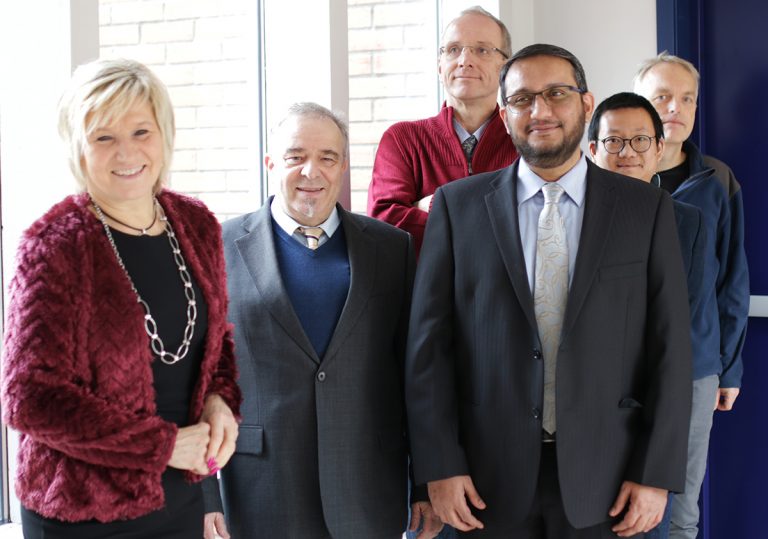Kashif Habib defended his PhD thesis
Kashif Habib defended his PhD thesis

Kashif Habib, research fellow at NR, successfully defended his PhD thesis at the Norwegian University of Science and Technology on the 15th November 2018 and will be awarded the degree of Doctor of Philosophy. The title of his thesis is “Context-Aware Adaptive Authentication for the IoT in eHealth” and the given topic for his trial lecture was “Privacy and Safety for Mobile Devices”.
The following committee has been appointed to evaluate his thesis, trial lecture and defense:
- First external opponent: Professor Denis Trček, University of Ljubljana, Faculty of Computer and Information Science, Slovenia.
- Second external opponent: Professor Rose-Mharie Åhlfeldt, Högskolan i Skövde, Sweden.
- Internal member and committee administrator: Associate Professor Bian Yang, Department of Information Security and Communication Technology, NTNU.
Kashif Habib carried out his PhD work at NR and the Department of Information Security and Communication Technology, NTNU in Gjøvik in connection with the ASSET project, that was funded by the Research Council of Norway. His main supervisor was Dr. rer.nat. Wolfgang Leister, Norwegian Computing Center and co-supervisors Professor Einar Snekkenes, Department of Information Security and Communication Technology, NTNU and Professor Ilangko Balasingham, Rikshospitalet and Department of Electronic Systems, NTNU.
Thesis abstract
The Internet of Things (IoT) presents a concept of smart world around us, where things are trying to assist and benefit people. Patient monitoring outside the hospital environment is one case for the IoT in healthcare. The healthcare system can get many benefits from the IoT such as patient monitoring with chronic disease, monitoring of elderly people, and monitoring of athletes fitness. The IoT in eHealth aims to assist the existing healthcare system by monitoring the vital signs of patient’s health data. The dynamic and heterogeneous environment of the IoT may facilitate the patient with mobility options. However, security-related problems may obstruct the development of such a comprehensive patient monitoring system. While standards and technologies are continuously developed for the IoT, the ethical aspects of these developments must be addressed and it may be incorporated in the system development life cycle.


 How to get to NR
How to get to NR Share on social media
Share on social media Privacy policy
Privacy policy